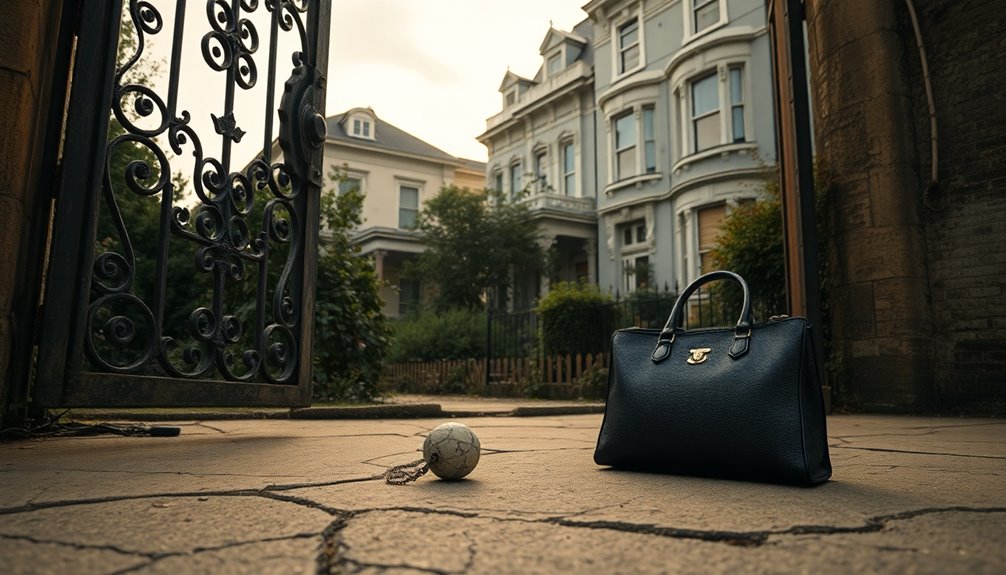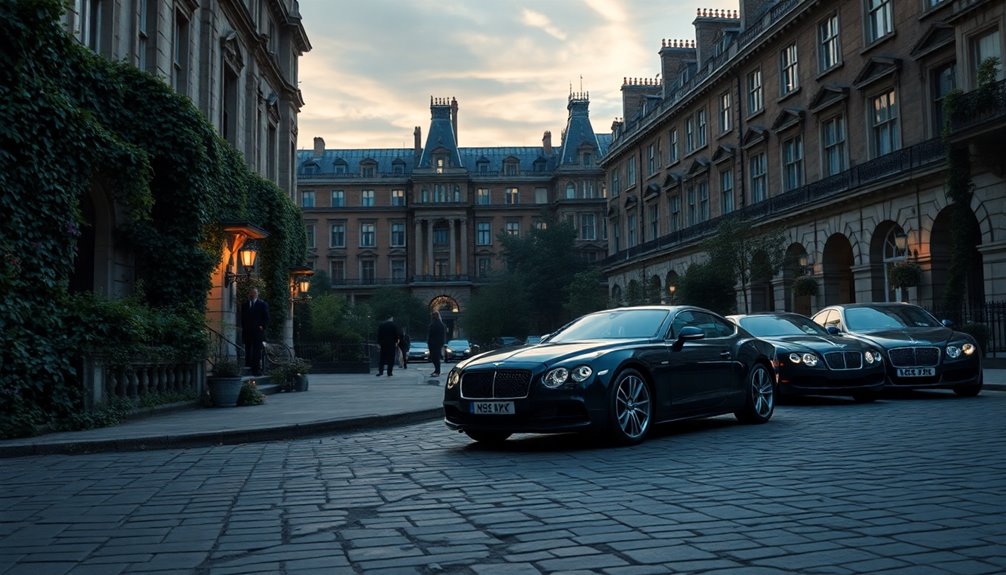London's luxury scene is fading, and you're not alone if you're considering new high-end enclaves for your getaways. With a drop in hotel rates and a shift in consumer preferences, the elite are seeking unique experiences beyond traditional luxury offerings. Cities and regions that offer vibrant cultural activities and exclusive retreats are becoming attractive alternatives. As the landscape shifts, you might want to explore these emerging destinations and discover where the world's elite are heading next.
Key Takeaways
- The decline in luxury hotel market post-Olympics has prompted elites to seek new high-end destinations outside London.
- Luxury retailers are experiencing reduced sentiment, signaling a shift in consumer preferences towards unique experiences.
- High-net-worth individuals are increasingly drawn to alternative enclaves, as traditional luxury offerings lose their appeal.
- Emerging luxury destinations are likely to compete with London, reflecting changing travel trends among the elite.
- The surge in high-end property sales indicates a growing interest in unique luxury experiences over conventional options.

As London's luxury market grapples with shifting dynamics, you might notice a decline in the once-stalwart average daily rates at hotels, which have dropped by 4.8% post-Olympics. This decline raises questions about the future of luxury accommodations in a city renowned for its high concentration of 5-star hotels, rivaling even Hong Kong.
While the luxury hotel sector shows resilience amid economic uncertainties, the influx of new luxury properties, like the Shangri-La at The Shard, sparks concerns about potential oversupply. High occupancy rates remain a key indicator of the market's strength, despite the challenges faced.
You're likely aware that the luxury retail landscape is also feeling the pinch. The percentage of luxury retailers feeling positive about their business prospects has plummeted from 71% in 2023 to just 53% in 2024. This shift mirrors trends seen in the divorce process across various states, as changing societal norms impact traditional sectors.
Even with over 227,000 high-net-worth individuals residing in London, the appeal of traditional luxury shopping is waning. While sales of high-end properties priced at £15 million and above surged by 25%, the overall sentiment remains cautious.
Luxury brands are shifting focus towards unique physical retail experiences and engaging cultural activities to attract discerning clientele.
In the realm of luxury department stores, names like Selfridges and Harrods face declining sales, as high streets lose their luster as shopping destinations. Many luxury brands have adopted online strategies to combat these challenges. In response to shifting consumer preferences, these iconic retailers are also pivoting towards sustainability, showcasing selections from the best sustainable jewelry brands 2025. This strategic move not only aligns with the growing demand for ethical practices but also attracts a new generation of eco-conscious shoppers. As a result, luxury department stores are redefining their offerings to maintain relevance in an increasingly digital and environmentally aware market.
However, some brands, like Burberry, have managed to thrive post-pandemic, while Ted Baker's recent bankruptcy in the U.S. reflects broader sector issues.
Despite these challenges, it's essential to recognize that luxury hotels continue to outperform budget options in the UK market. Investment in the UK hotel sector is on the rise, and the operational costs remain a hurdle for cautious investors.
Notably, London's average daily rates are still 31% higher than five years ago, indicating strong demand. However, as you watch these trends unfold, it's clear that the world's elite are eyeing alternative high-end enclaves for their next luxurious escapes.
Frequently Asked Questions
What Specific Factors Are Contributing to London's Luxury Decline?
Several factors are driving London's luxury decline that you should consider.
High inflation and interest rates are squeezing luxury spending, while global economic uncertainty is shaking consumer confidence.
The loss of tax-free shopping for international visitors also hits retail sales hard.
Additionally, the shift in consumer preferences towards experiences over goods and the growing popularity of online shopping further challenge traditional luxury markets, leading to decreased sales in iconic department stores.
Which Cities Are Emerging as Alternatives to London for the Elite?
If you're exploring alternatives to London for luxury, consider cities like New York City and Paris, both renowned for their high-end shopping and vibrant cultures.
Shanghai's rapidly growing luxury market offers a fresh appeal, while Dubai impresses with its extravagant malls and innovative architecture.
Singapore's blend of luxury and sustainability makes it a top contender, too.
Each city presents unique experiences tailored to the elite, making them worthy of your attention.
How Is the Luxury Market Evolving in These Alternative Enclaves?
As the tides of luxury shift, you're witnessing an evolution in alternative enclaves.
Cities like Miami and Dubai are embracing sustainability and wellness, attracting affluent buyers seeking eco-friendly spaces.
You'll find branded residences blossoming, offering prestige and top-notch amenities.
Flexible layouts for multigenerational living rise in demand, reflecting lifestyle changes.
With an influx of cash buyers, the luxury market's resilience shines, adapting to your preferences for comfort, connection, and sustainability.
What Demographics Are Most Affected by London's Luxury Decline?
You'll find that high-net-worth individuals (HNWIs) are significantly impacted by London's luxury decline.
With a decrease in the millionaire population since 2016 and tighter economic policies, many affluent individuals are seeking alternative locations.
The luxury housing market suffers too, as transactions for expensive homes drop.
These changes push wealthy buyers toward cities like New York and Singapore, which now offer more appealing economic and lifestyle opportunities than London does.
Are There Any Investment Opportunities in These New High-End Locations?
When it comes to investing, you've got to strike while the iron's hot.
Emerging luxury markets like Miami and Dubai offer golden opportunities with their rising demand and affordability. Cities such as Lisbon and Athens are also catching attention for their attractive pricing and visa options.
By diversifying your investments across these locations, you can capture unique growth potential while mitigating risks.
Conclusion
As London's luxury scene dims like a once-bright star losing its luster, the world's elite are scrambling to find new havens that shimmer with promise. Whether it's the sun-kissed villas of the Amalfi Coast or the opulent penthouses of Dubai, these high-end enclaves offer an allure that's hard to resist. So, as the old guard fades, you might just discover that your next lavish escape is waiting just beyond the horizon, sparkling like a treasure chest of dreams.









